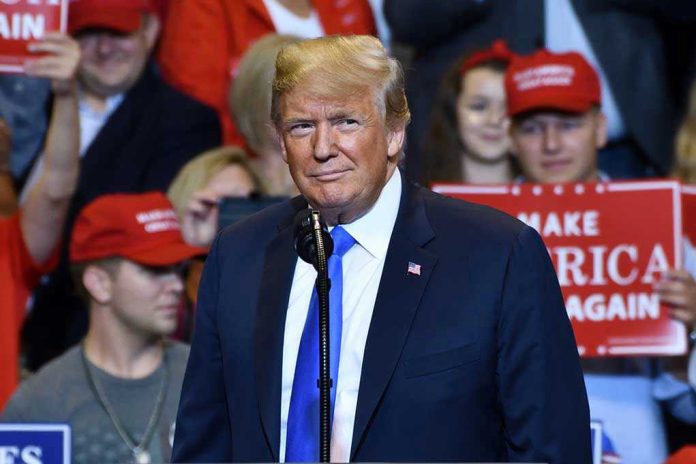
Canada folded on its grand plan to tax American tech giants after President Trump threatened tariffs and abruptly ended trade talks—proving once again that U.S. leverage trumps performative globalist policy every single time.
At a Glance
- Canada’s Digital Services Tax targeting U.S. tech companies is dead on arrival after Trump’s trade threats.
- Trump’s administration forced Canada to back down by leveraging the threat of tariffs and ending negotiations.
- The $2 billion tax bill aimed at American firms like Google and Amazon has vanished overnight.
- This standoff highlights how unilateral digital taxes are no match for decisive American power.
Canada’s Digital Tax Dreams Crash Headlong Into American Reality
Canada’s government spent years puffing up a so-called “Digital Services Tax”—a move designed to squeeze revenue out of American tech innovators who dared to provide services to Canadians. The plan, cooked up back in 2020, would have slapped a 3% levy on revenues from behemoths like Google, Meta, and Amazon, with the first collection set for June 30, 2025. This was supposed to bring in a fat $2 billion, all while scoring points with the anti-tech, anti-American crowd in Ottawa. But when you’re up against the United States—especially a U.S. president who actually puts America first—good luck. The moment President Trump got wind of Canada’s scheme, he cut off trade talks and threatened tariffs, effectively yanking the rug out from under Canada’s feet. Suddenly, “fairness” took a backseat to economic reality.
Canadian officials, led by Prime Minister Mark Carney, scrambled to the phone for a direct line to President Trump. Within hours, Canada announced the DST would be scrapped, legislation would be repealed, and the tax man would take his hands off American tech wallets. The lesson? All the progressive posturing in the world doesn’t matter if you’re negotiating with a U.S. president who’s not afraid to use real leverage.
How Trump’s America-First Policy Vaporized Canada’s Tax Grab
For years, the U.S. government—under both parties, for what it’s worth—called out these digital taxes for what they are: targeted attacks on American success. The Trump administration drew a bright red line. The moment Canada’s Digital Services Tax became law on June 28, 2024, the days were numbered. Trump’s administration publicly slammed the tax as discriminatory and a direct violation of USMCA trade agreements, warning Canada that American patience was running on empty. By June 28, 2025, President Trump stopped all further trade talks and raised the specter of tariffs. That was all it took: Canada caved on June 29, announcing the immediate reversal of its digital tax ambitions.
The so-called “multilateral solution” Canada claimed to want? That’s code for “let’s get the U.S. to pay our bills while we virtue signal to Brussels.” The European Union has tried similar stunts, with digital market fines and regulations aimed squarely at American firms. But unlike the EU, Canada ran into a U.S. administration unafraid to call a bluff and play hardball with America’s massive trade clout.
Winners, Losers, and What This Means for America’s Future
The American tech sector just dodged a $2 billion bullet. Companies like Google and Amazon, along with everyday U.S. shareholders and workers, get to keep what they’ve earned instead of handing it over to the Canadian government. Canadian politicians, on the other hand, are stuck explaining to their own citizens why they folded like a cheap tent the second real pressure was applied. Talk about leadership. Meanwhile, the Canadian government loses out on its projected DST revenue, but at least they avoided a trade war that would have done even more damage to their already fragile economy.
This episode sends a clear signal to every other country dreaming of squeezing American innovation for a quick political win. Unilateral digital taxes are simply not going to fly—not when the U.S. is willing to defend its economic interests with real consequences. The only path forward is a multilateral, negotiated approach—one where America isn’t treated like a piggy bank for globalist bureaucrats. Trump’s move not only protected American business but also reminded the world that the U.S. Constitution and free enterprise still mean something on this side of the border.




